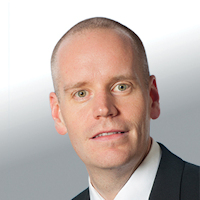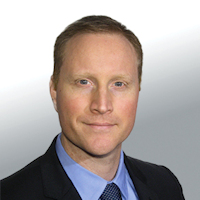Outlook on Energy
The energy market will change drastically in the coming years due to the energy transition. Coal-fired power plants will make way for natural gas-fired power plants. Investments are made in new energy sources, such as wind and solar energy and more environmentally-friendly production methods, and efforts are directed towards more efficient building of installations and factories. This offers many opportunities for Van Leeuwen, not in the least because of our broad expertise in the timely delivery of the right products at the right time.
David Abernethy,
Regional Manager Oil and Gas, Van Leeuwen Singapore
‘Demand from the energy market is really picking up; this is evident from our order book and quotation levels,’ says David Abernethy, Regional Manager Oil and Gas at Van Leeuwen Singapore. ‘That can be partly explained by new legislation which makes it necessary for our customers to produce more environmentally friendly. In addition, the increase in incomes in Asia is creating more demand for products from the chemical sector. The demand for our products and services is therefore increasing sharply.’
'Which new legislation affects our customers? The Euro 5 emission standard for cars, for example, which requires that the emissions of harmful substances must be reduced. As a result, demand for cleaner fuels will increase, requiring new production facilities such as desulfurization plants. In addition, from 2020 new rules from the International Maritime Organization will apply to the permitted amount of sulfur oxides emitted by maritime vessels. As a consequence, new ships will have to be built and fitted with sulfur desulfurization equipment and existing vessels will need to be retrofitted.
Liquefied Natural Gas (LNG) is an example of a ‘clean’ fuel that creates many business opportunities for Van Leeuwen, now and in the future: from upstream activities through LNG processing plants to loading and regasification terminals.
Other technological developments will also mean an increase in demand for our products and services. More and more end users are adopting modular construction for their plants. This involves the construction of several modules in a yard which are then transported ready-made to the project location. It is a more efficient method, but it also involves more complex logistics for our customers. Not in the least because they want to purchase products through a framework contract when they need them. We are strong in just-in-time deliveries, so Van Leeuwen can profit from this.
We are also expecting an increase in the demand for higher quality materials. Partly because producers have to meet increasingly strict requirements. The new generation of plants and refineries must, for example, be resistant to more aggressive chemicals, last longer and be more efficient. Van Leeuwen can also meet this demand for higher quality materials.
In any event, there are plenty of opportunities in Asia. The increase in incomes in Asia is creating more demand for products from the chemical sector. These products include consumer products, fertilizers, synthetic rubbers and packaging. It is not without reason that we are seeing an enormous growth in the chemical market in countries like Malaysia, Indonesia, Thailand and China. Our worldwide network with local presence plays a large role in grasping these opportunities. After all, many projects are international, such as engineering in Japan, manufacturing in China and the project location in Europe or the United States. But we can also meet local demands, such as – which is sometimes the case in upcoming economies – the demand to let part of the spending take place within their national borders.’
 Mark Schutz,
Mark Schutz,
Manager Capital Projects,
Van Leeuwen Canada
‘We help our customers in finding solutions together and constantly identify what the developments in the energy market mean to them.’
‘Our customers are now mainly investing in sustainable and more efficient use of assets and therefore in the maintenance of facilities. The Canadian energy market is a major focus in Alberta. What we see here is that oil and gas wells are also being maintained to keep up production levels. There are also possibilities in the petrochemical industry: new construction projects are being considered and planned.
Whether larger projects are on the horizon? Within ten to fifteen years, Alberta is looking to make the transition from coal-fired to gas-fired power plants. As this leads to new construction projects, it will have good possibilities for us. A potential new Shell LNG project on the Canadian west coast is also on the outlook.
At the moment, we notice that the market continues to remain challenging. It is therefore all the more important right now to continue providing added value to our customers. We help our customers in finding solutions together and constantly identify what the developments in the energy market will mean to them and the role we can play in that regard. Our efforts for greater efficiency within our own company and standardized work processes – such as the introduction of a new IT platform – contribute to this.’
 Cédric Jacopucci,
Cédric Jacopucci,
Director Projects,
Van Leeuwen Frankrijk
‘We have no influence on market developments. We do, however, have influence on the relationship with our customers.’
‘We see a growth in sales in France, Spain, North Africa and Russia. The chemical process industry in particular is showing growth and there is increasing demand for pipelines in Algeria. Of course, the low oil price is still slowing down the investment volume and the margins are still under pressure for the time being, but the outlook is positive.
An example? We see large projects starting, for example the construction of an LNG terminal in Belgium for which we will be supplying materials through a Spanish EPC customer. Investments in sustainable energy also offer new opportunities. The energy transition is good news for Van Leeuwen. It is my ambition to investigate all the opportunities that this provides us. For example, in new applications of our existing products, or new materials and new products such as hydrocarbons.
We have no influence on market developments. We do, however, have influence on the relationship with our customers. Therefore, I believe it is essential to continue providing added value and to focus on customer intimacy. Our excellent project organization and the cooperation with project teams in Houston, Singapore and Paris facilitate this. I also believe it is important that we provide the right offer to our customers the first time, and execute delivery perfectly.’
